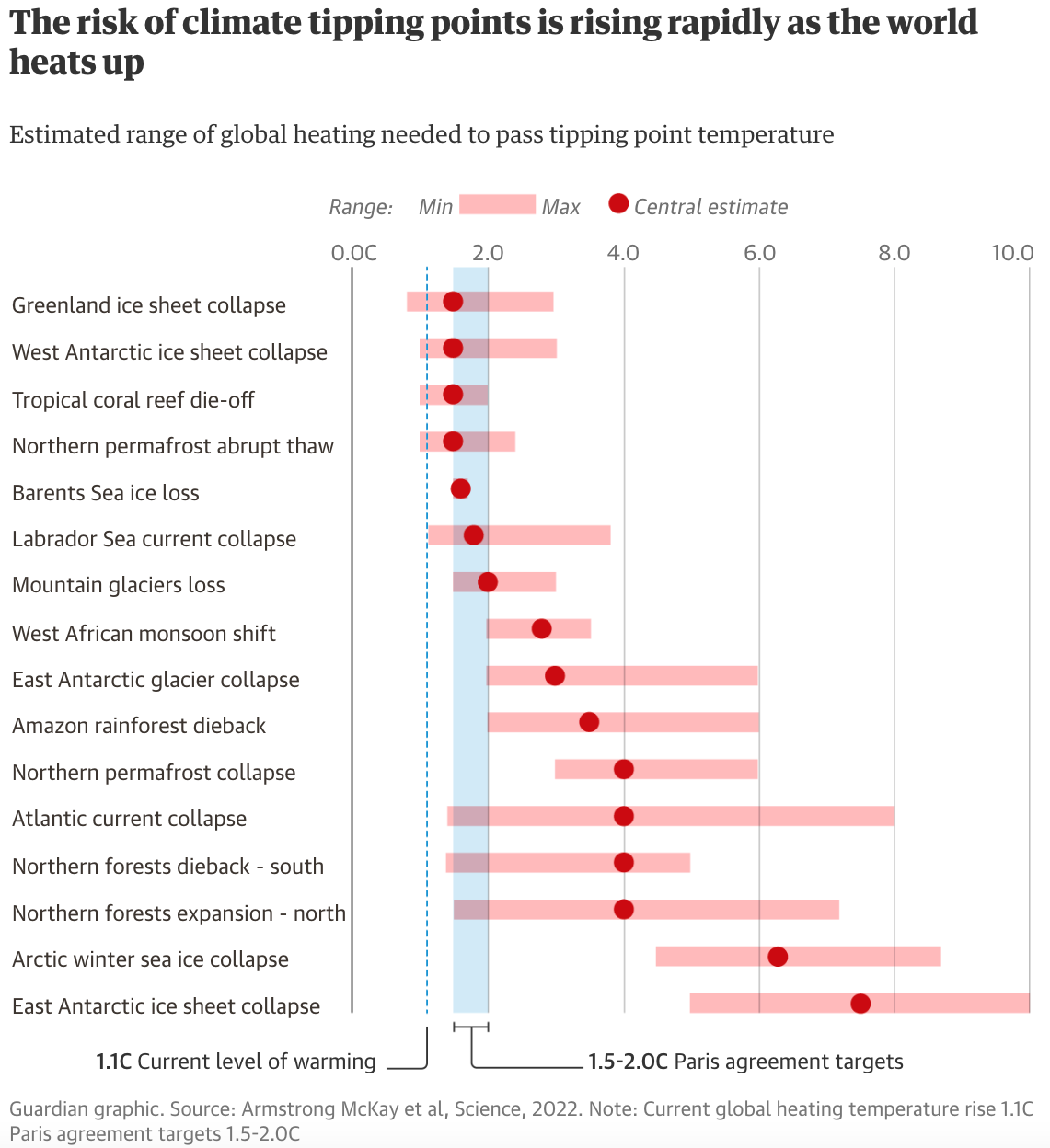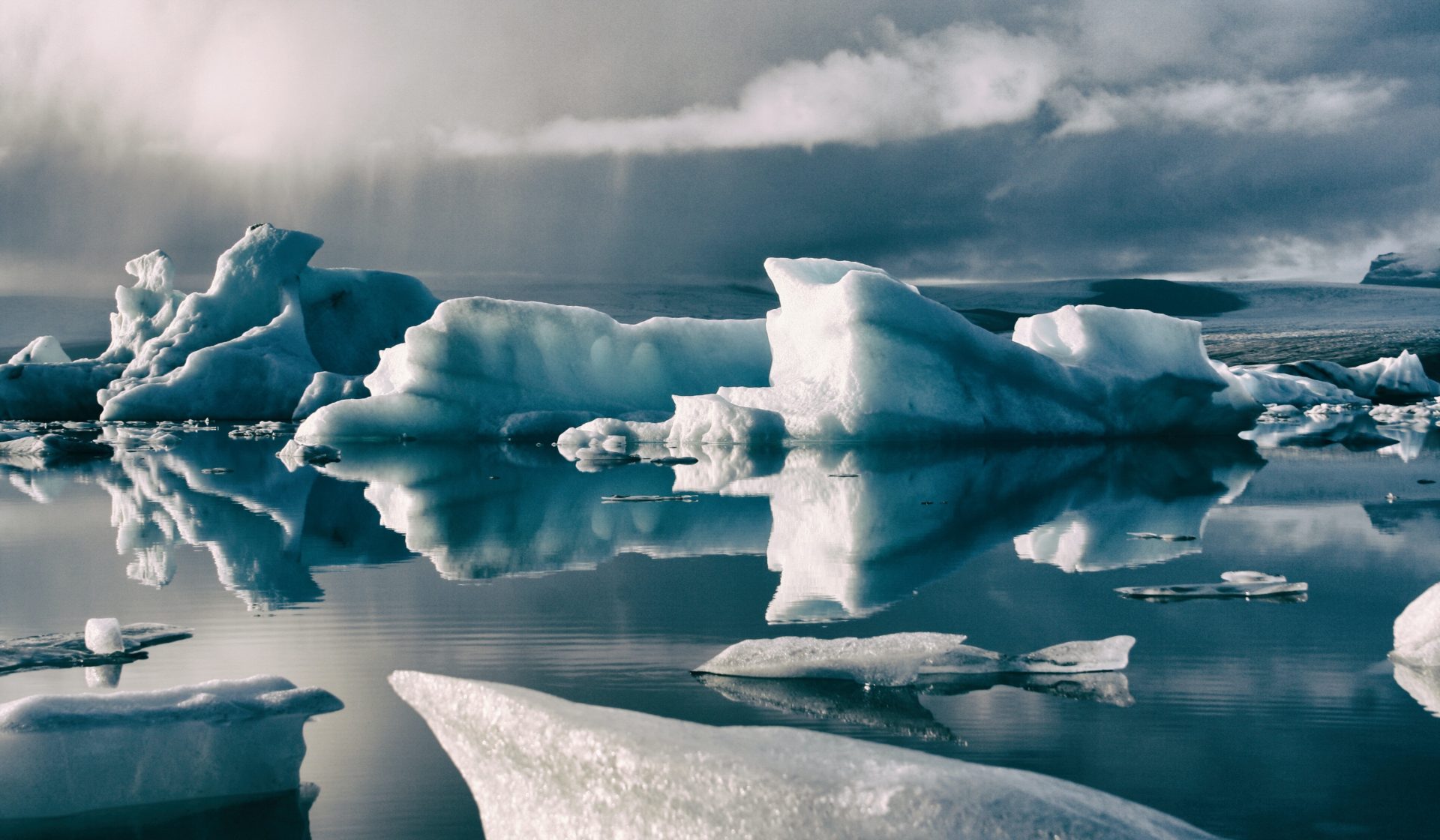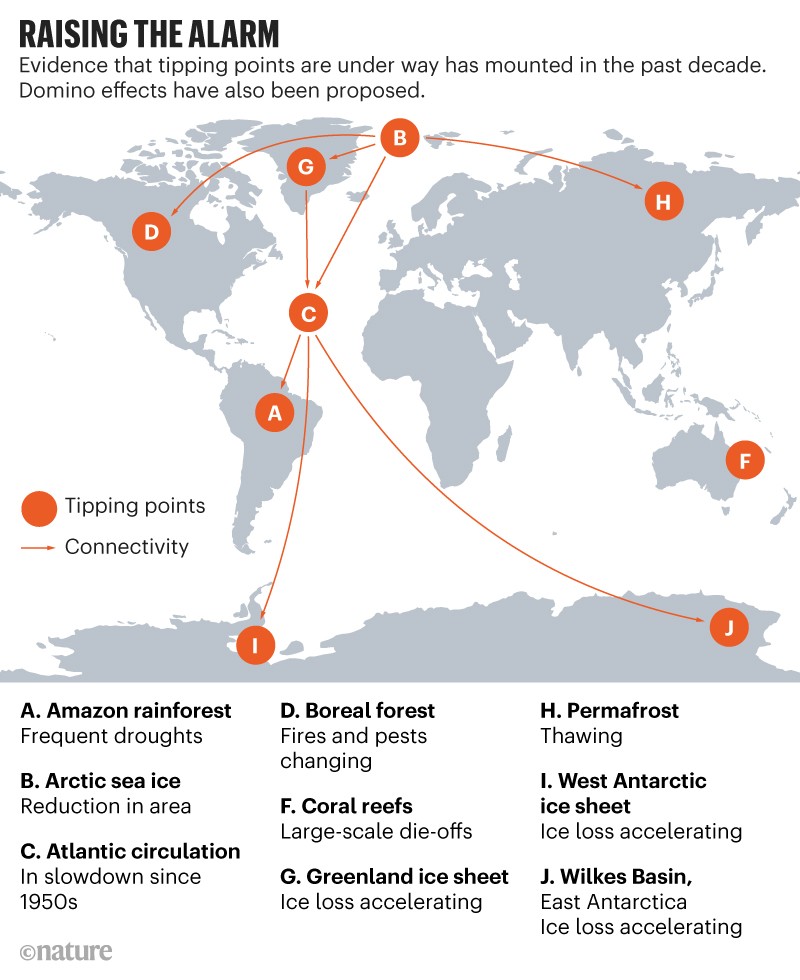A major scientific reassessment has uncovered that five critical planetary systems are at risk of breaking beyond repair – even if nations restrain warming to 1.5°C, the lower threshold stipulated by the Paris Agreement.
This time last year, a devastating report from the IPCC warned us that the world was well and truly running out of time to act against climate change.
Signed off by 234 scientists from more than 60 countries, it stated that ongoing emissions of warming gasses would likely see the key temperature limit of 1.5°C broken within the decade, breaching the ambition of the 2015 Paris Agreement.
The study, which UN Secretary-General António Guterres aptly branded a ‘code red for humanity,’ sent shockwaves across the globe, though little has been done by those in power since to reflect the urgency of such findings.
Today, a major scientific reassessment claims our Earth is hurtling towards multiple ‘irreversible’ tipping points with the potential to bring about massive environmental and societal consequences.

According to the research, these include the collapse of both Greenland’s ice cap (which would eventually produce a huge sea level rise) and a key current in the north Atlantic (disrupting rain upon which billions depend for food), as well as an abrupt melting of carbon-rich permafrost.
All of these critical planetary systems are at risk of breaking beyond repair – even if nations suddenly decide to rally and drastically accelerate their so far feeble efforts to prevent that from taking place.
In addition, at 1.5°C (the minimum increase that’s now expected), changes to vast northern forests and the loss of almost all mountain glaciers could become a reality.
Any further, and it’s probable we’d witness a domino effect, whereby passing one tipping point would help trigger others (from the dying-off of tropical coral reefs and loss of ocean oxygen to the total destabilisation of the Amazon rainforest and major shifts in the Indian summer monsoon) amounting in cascades that would pose a threat to human life as we know it.




















